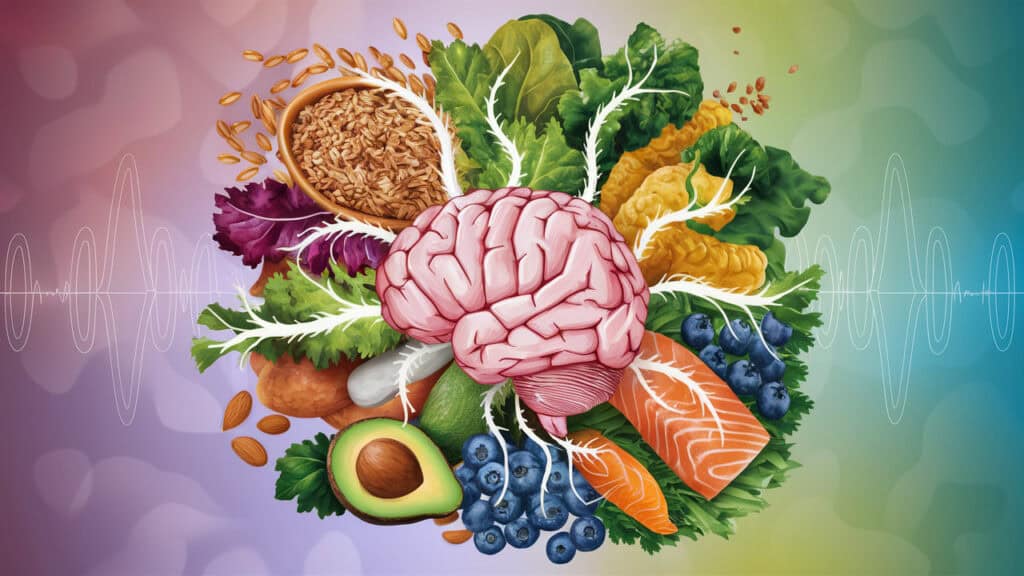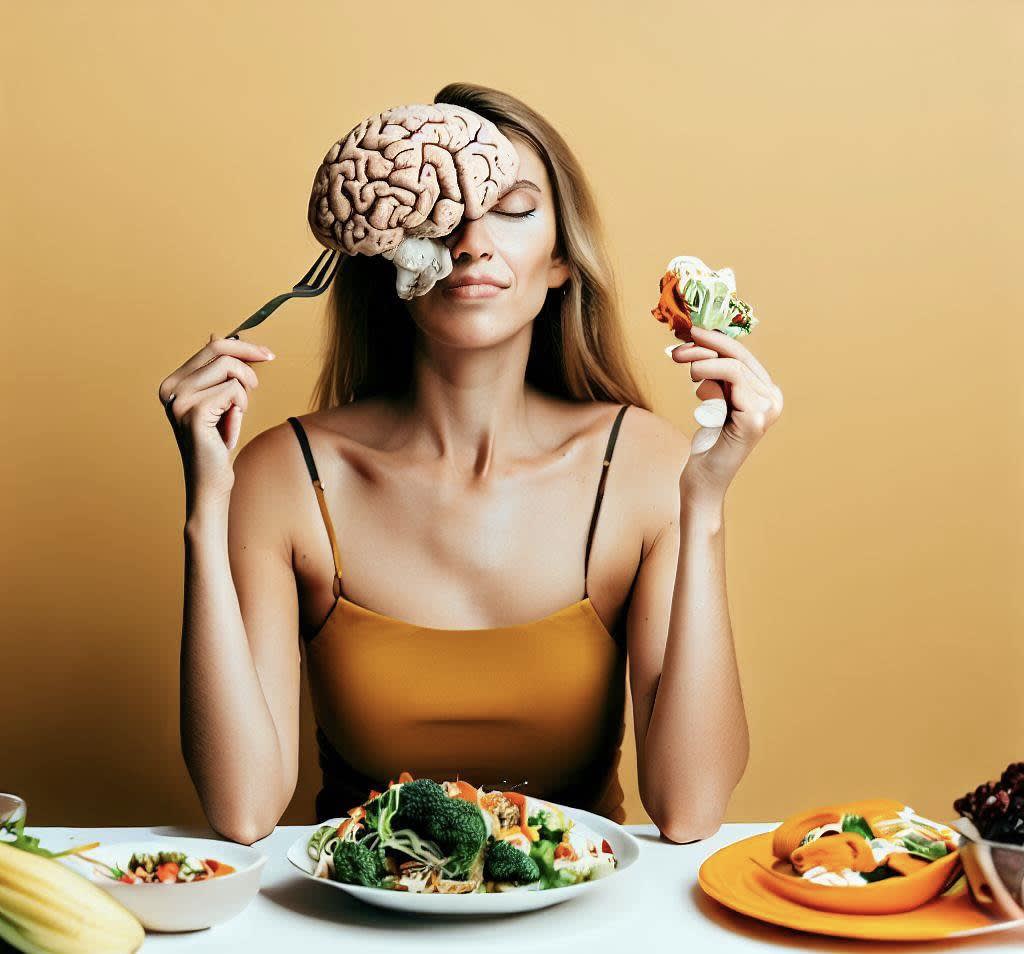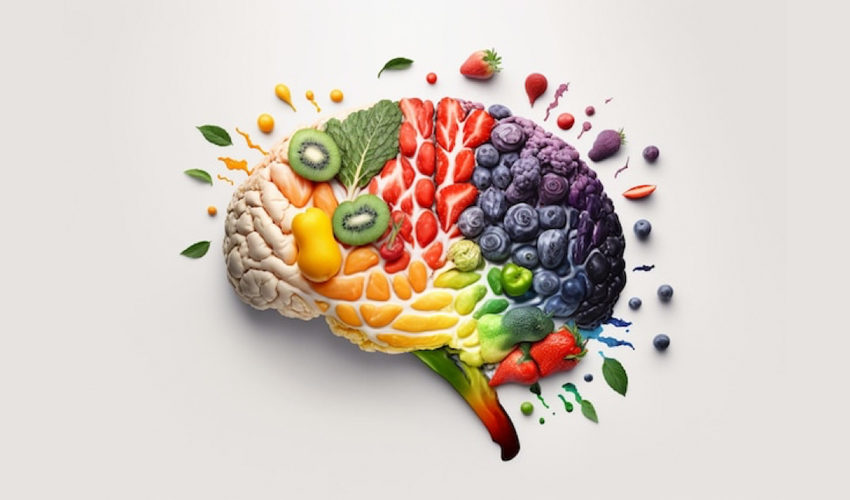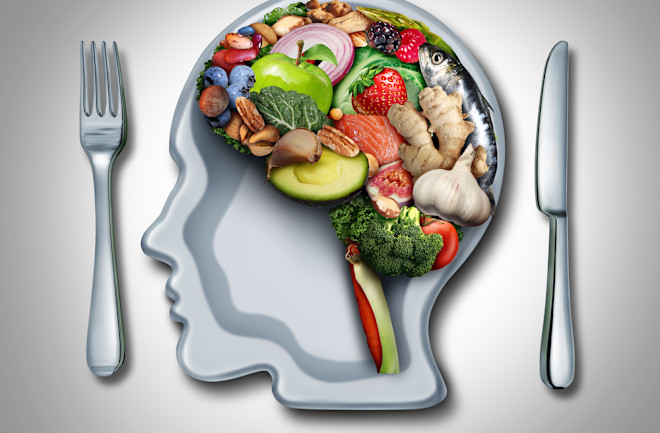Table of Contents

Introduction for diet and mental health connection
In today’s bustling, fast-paced world, mental health challenges are a growing concern. Amidst the plethora of self-care strategies and discussions on mental wellness, one often-overlooked yet critical component is diet. The relationship between what we consume and our mental health is multifaceted and profound. An array of scientific studies is now shedding light on the pivotal role that nutrition plays in shaping our moods, cognitive functions, and overall mental health. This comprehensive blog post aims to delve into this intricate connection, highlighting the ways in which a well-balanced diet can significantly enhance our emotional well-being and provide actionable steps to achieve this goal.
The Intricate Link Between Diet and Mental Health
In a world where stress and burnout are almost synonymous with daily life, the quest for mental clarity, emotional stability, and an improved mood is more pertinent than ever. The food we eat is not just fuel for our bodies; it is also essential for our minds. A balanced diet can serve as a natural antidepressant, mood stabilizer, and cognitive enhancer. It is through this lens that we explore the seven powerful ways in which diet impacts mental health, offering insights that can help you make informed choices to support your emotional journey.
The Gut-Brain Axis: The Influence of Gut Health on Emotional Resilience
The human body is a complex system of interconnected parts, and the gut-brain axis is a prime example of this interdependence. Often termed the “second brain,” the gastrointestinal tract is home to a vast ecosystem of bacteria that communicate with the brain, influencing mood and emotions. This two-way communication is facilitated by the vagus nerve and the gut microbiota, which is vital for producing neurotransmitters such as serotonin and dopamine. These neurochemicals are crucial for regulating our moods, and approximately 90% of the body’s serotonin is produced in the gut.
The Importance of Probiotics and Prebiotics
To maintain a balanced and thriving gut microbiota, one must consider consuming foods rich in probiotics and prebiotics. Probiotics are live bacteria found in certain foods like yogurt, kefir, and various fermented items like kimchi and sauerkraut, which contribute to gut health. Prebiotics, on the other hand, are non-digestible fibers found in bananas, onions, garlic, and other high-fiber foods that serve as food for the beneficial bacteria in our gut. Both work in concert to bolster the gut’s bacterial diversity, which is intricately linked to emotional resilience.
A seminal study published in the prestigious scientific journal Nature demonstrated the profound impact of a balanced gut microbiota on mental health. Participants who adhered to a diet enriched with probiotics and prebiotics reported significant improvements in their mood over a six-month period. This underscores the potential of dietary interventions in managing and preventing anxiety and depression.
The Stabilization of Blood Sugar for Enhanced Moods
Blood sugar fluctuations can have a dramatic effect on our emotional state. A diet high in refined sugars and processed carbohydrates can lead to rapid spikes in blood glucose, followed by equally swift crashes. This rollercoaster of highs and lows can manifest as irritability, fatigue, and mood swings, making emotional equilibrium elusive.
The Benefits of Slow-Digesting Carbohydrates
For stable moods, opt for complex carbohydrates that offer a sustained release of energy. Whole grains, legumes, and sweet potatoes are excellent choices as they provide a steady flow of glucose to the brain, avoiding the erratic swings associated with refined sugars. Additionally, combining carbohydrates with protein and healthy fats can further moderate blood sugar levels, contributing to a more balanced mood profile throughout the day.
Practical Strategies for Blood Sugar Regulation
Start your day with a balanced breakfast consisting of oats, nuts, and fresh fruits to set the stage for stable blood sugar. Throughout the day, favor snacks such as hummus with whole-grain crackers over sugary options. Moreover, it is essential to avoid skipping meals, as prolonged periods without food can lead to hypoglycemia and exacerbate irritability.
Omega-3 Fatty Acids: The Cornerstone of Brain Health
The human brain is approximately 60% fat, and the type of fat we consume significantly influences its structure and function. Omega-3 fatty acids are essential for this purpose, supporting the production of neurotransmitters and reducing the brain inflammation linked to conditions like depression and anxiety.
Food Sources of Omega-3s
To ensure adequate omega-3 intake, consider adding fatty fish such as salmon, mackerel, and sardines to your meals. For vegetarians and vegans, flaxseeds, chia seeds, and walnuts offer plant-based alternatives. Supplementation with fish oil or algae-based omega-3s is also a viable option to bolster mental health.
The Science Behind Omega-3s
A meta-analysis published in The Journal of Psychiatric Research revealed that individuals with higher omega-3 intake experienced a 20% decrease in depressive symptoms compared to those with lower levels. This compelling evidence underscores the pivotal role of omega-3 fatty acids in maintaining mental wellness.
The Protective Role of Antioxidants
Oxidative stress, the damage caused by free radicals, has been implicated in a range of mental health issues, including depression and cognitive decline. Antioxidants are vital in combating these harmful molecules, thereby protecting brain cells from damage.
Foods Rich in Antioxidants
To incorporate antioxidants into your diet, consider the following:
- Dark chocolate: Known for its mood-enhancing flavonoids.
- Berries: Blueberries and strawberries are particularly high in these protective compounds.
- Leafy greens: Spinach and kale are rich in vitamins C and E, which are potent antioxidants.
The Science of Antioxidants and Mental Health
Studies have consistently shown that a diet abundant in antioxidants reduces brain inflammation, thus promoting neuroplasticity and contributing to better mental health outcomes.


Micronutrients: The Key to Mood Balance
While macronutrients provide the bulk of our energy, micronutrients are essential for the intricate processes that govern mood and mental health. Several micronutrients are particularly critical:
- Vitamin D: Known as the “sunshine vitamin,” it plays a significant role in regulating mood and may help combat seasonal affective disorder (SAD).
- Magnesium: This mineral is celebrated for its calming effects on the nervous system, which can help mitigate stress and anxiety.
- B Vitamins: These are essential cofactors in the production of neurotransmitters like serotonin and dopamine, which are the chemical messengers of mood.
How to Include Micronutrient-Rich Foods in Your Diet
- Leafy greens: Spinach and Swiss chard are excellent sources of magnesium and folate, a B vitamin essential for mental health.
- Dairy products and fortified cereals: Rich in vitamin D and calcium, which are vital for a balanced mood.
- Seafood: A bountiful source of B vitamins and magnesium.
- The Anti-Inflammatory Diet: A Path to Mental Clarity
Chronic inflammation is increasingly recognized as a significant player in mental health issues. A diet laden with processed foods, sugars, and trans fats can fuel this harmful state, contributing to the onset of depression and anxiety.
Foods to Favor for an Anti-Inflammatory Diet
- Turmeric: Contains the powerful anti-inflammatory compound curcumin.
- Olive oil: A cornerstone of the Mediterranean diet, which is renowned for its brain-health benefits.
- Fatty fish: High in omega-3 fatty acids, which are potent anti-inflammatory agents.
Research Findings
A study in Brain, Behavior, and Immunity reported that individuals adhering to an anti-inflammatory diet experienced a reduction in depression and anxiety symptoms within a mere eight weeks, emphasizing the dietary approach’s efficacy in mental health management.
Hydration and Mental Clarity: The Often Overlooked Link
The human body is approximately 60% water, and even mild dehydration can impair cognitive functions and exacerbate mood disturbances. Proper hydration is essential for optimal brain function and mental clarity.
Setting Water Intake Goals
Aim for 2-3 liters of water daily, tailored to your specific needs based on factors such as age, weight, and activity level. Additionally, incorporate hydrating foods like watermelon, cucumbers, and oranges into your meals for a more holistic approach.
Creative Hydration Strategies
- Infuse your water with lemon, mint, or berries for a refreshing twist.
- Explore herbal teas for a flavorful alternative to plain water.
Cultural Diets and Their Impact on Mental Health
The Mediterranean Diet: A Blueprint for Well-Being
Emphasizing whole foods, healthy fats, and lean proteins, the Mediterranean diet has been lauded for its role in reducing the risk of depression and fostering overall mental health.
The Wisdom of Traditional Asian Diets
Incorporating green tea, seaweed, and fermented foods, these diets are a treasure trove of antioxidants and probiotics, both of which support mental wellness.
The Personalization of Nutrition for Mental Health
Understanding cultural and genetic factors is crucial for tailored dietary advice that can optimize mental health. Personalized nutrition takes into account an individual’s unique needs, ensuring the greatest possible benefits from dietary changes.
Overcoming Challenges in Adopting a Mental Health-Optimized Diet
Socioeconomic barriers often stand in the way of accessing nutrient-dense foods. Community programs and budget-friendly meal planning can help mitigate these challenges. Additionally, navigating the sea of dietary fads and misinformation requires a discerning eye and a commitment to evidence-based nutrition advice.
Practical Steps Toward a Mind-Body Diet


Self-Assessment
Evaluate your current eating habits and identify areas that could be improved. Keep a food diary to track how different foods affect your mood and energy levels.
Setting Achievable Goals
Begin with small, incremental changes such as introducing one nutrient-rich meal daily or gradually reducing sugar consumption.
Monitoring Your Progress
Keep tabs on both emotional and physical changes resulting from your dietary adjustments. Regular consultations with a nutritionist can provide personalized feedback and support.
Expert Insights and Success Stories
Expert Opinions
Healthcare professionals, such as Dr. Jane Doe, often highlight the profound impact of diet on mental health, emphasizing that a well-rounded diet can serve as a natural defense against mental health issues.
Real-Life Transformations
Countless individuals have reclaimed their mental health through dietary interventions. John, a 35-year-old teacher, shares his success in overcoming depression and boosting his energy levels with the help of a Mediterranean diet, illustrating the transformative potential of food.


Conclusion
The relationship between diet and mental health is a complex, interwoven tapestry. By understanding the profound impact of nutrition on our mental well-being and making informed dietary choices, we can take significant strides toward unlocking happiness through what we eat. This blog post serves as a starting point for that journey, offering insights into the power of a balanced diet and the various ways it can bolster mental resilience. With perseverance and the guidance of healthcare professionals, a mental health-optimized diet can be a game-changing tool in your quest for emotional balance and clarity.
diet and mental health connection diet and mental health connection diet and mental health connection diet and mental health connection diet and mental health connection diet and mental health connection diet and mental health connection diet and mental health connection diet and mental health connection diet and mental health connection diet and mental health connection diet and mental health connection diet and mental health connection diet and mental health connection diet and mental health connection diet and mental health connection diet and mental health connection diet and mental health connection diet and mental health connection